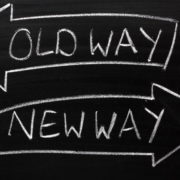About That Winning Streak…
Winning streaks are both essential and dangerous…know the difference.
How important are winning streaks?
A winning streak is a great thing. It shows consistency. It shows advantage. It shows careful attention to detail and general focus on the win. It may even show talent.
But winning streaks are also dangerous. Just as anyone who has ever played a sport will tell you, a winning streak creates immense pressure within some individuals and immense complacency in others, and sometimes it’s hard to tell who is who.
In the business world, a winning streak might looks like a streak of closed sales against a main competitor. It might look like a streak of earnings increases over prior quarters. It might even look like a streak of successful product launches or talent acquisitions. Streaks come in all shapes and sizes.
As a strategist, I argue that streaks are important in a few ways.
Namely,
They build credibility where none may have previously existed. Human minds are really complex but sometimes awfully simple; show your board or your organization a stream of small wins, and they will get it, but show them a string of wins broken by a string of losses, and they will wonder what you are getting at. In most change efforts, a focus on early and visible wins is a core element. There’s a reason for that…the wins build credibility.
Streaks also create attraction. People like to bet on a winner, so it’s great to point to wins when attracting talent or wooing that next acquisition.
But streaks have a downside, and that has to be managed. I’ll put it in the same two categories that I mentioned at the start of this post:
First, streaks create pressure, both individually and organizationally. Why? Because who wants to break a streak? The downside of this pressure is that it can lead to ethical lapses because the streak must be maintained. “We never lose” is a very dangerous mantra because it comes with the implication that we either never really challenge ourselves or we play the game in such a way that it is rigged to our advantage.
Second, streaks engender complacency. I happened to be a part of a global firm during the last economic downturn. Many, many individuals in that firm had grown up as the recipients of a built-in winning streak. The phone rang, and there was work to be done. However, as the economy changed, many had to suddenly learn how to sell, and a few weren’t very good at it. Their complacency was complete.
The implications for all of us on this topic really do vary. I’ll try to put a few out there:
If you are leading change, be sure to find ways to create a streak or two. Credibility can depend on it. Have the discipline, for instance, to leave some low-hanging fruit for others to capture vs. doing it all yourself.
Also, be sure to capture your winning streaks, celebrate them, and use them as strategic tools for talent attraction and relationship building. Taking a moment to reflect on a streak can be powerful in almost any circumstance.
If you are in the midst of a streak, be sure to test for corner cutting or ethical lapses when the streak is uncannily extended. So, do you have a business unit that has never had a loss? Check for whether they are burying their talents or their skeletons in the name of earning their bonuses.
Finally, if you are part of an organization that has never had a significant run of bad luck, then take the time to force the “what if” conversation and to build the contingent skills now. It’s a bad thing to be the guy who has been sitting pretty for years based on a high tide, but who is now grounded and without the skills necessary to get unstuck.
Your career may depend on it.








 info@wilsongrowthpartners.com
info@wilsongrowthpartners.com /wilsongrowthpartners
/wilsongrowthpartners @GeoffTWilson
@GeoffTWilson

Perhaps said another way, the “We never lose” mentality will drive you to be more and more risk averse and more and more short term in your thinking. Don’t jeopardize a win by taking risks. This is subtle and difficult to manage. I’ve often heard the mantra “if you’re not failing some of the time, you’re not taking enough risks” but it is a rare organization that can actually pull this off in a healthy and productive manner.
It’s a great way to think about it, Jeff. The easiest analogy to what you are talking about would be lenders. Lenders expect and reserve for some portion of losses on their loans. While it would be “safe” to experience zero losses, it’s actually not the economically ideal outcome, because it means they aren’t deploying enough of their capital. The same is really true of other types of capital–knowledge, talent, etc. etc. etc. Thanks for the comment.